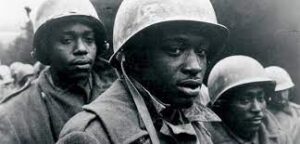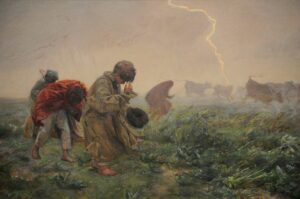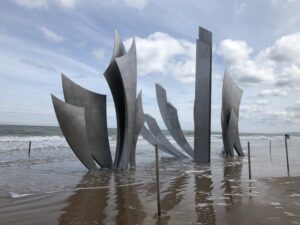Equal Justice Initiative (EJI)
Sacrifice. 🕊
May 31, 2021Memorial Day 2021
‘Lasting peace requires its active and systematized cultivation at every level of government and society.’
-Marianne Williamson
Thinking today of the Black Americans who returned from WW’s I and II only to be met with deeper segregation, violence and lynchings. -dayle
EJI
[EQUAL JUSTICE INITIATIVE]
Targeting Black Veterans
Lynching in America
Inspired to defend their country and pursue greater opportunity, African Americans have served in the U.S. military for generations. But instead of being treated as equal members of society upon their return from military service, thousands of Black veterans were accosted, attacked, or lynched between the end of the Civil War and the post-World War II era.
During the late 19th and early 20th centuries, white supremacy remained law and custom throughout the nation, and many whites feared that Black soldiers who had experienced the pride of military service would resist the disenfranchisement, segregation, and second-class citizenship that still characterized the African American experience. In August 1917, U.S. Senator James Vardaman of Mississippi warned that, once a Black soldier was allowed to see himself as an American hero, it would be “but a short step to the conclusion that his political rights must be respected.” Bringing Black soldiers home to the South with expectations of equality, he predicted, would “inevitably lead to disaster.”
~
From professor and author Timothy Snyder:
“This one, from Polish, is about trauma, so I thought it might be fitting for May 31st, which in the United States is Memorial Day.”
‘After the Storm’ by Maria Konopnicka, from 1902.
[“The titular storm is never actually described. It is between the stanzas, in the past.”]
Oh lord, who grants to his world the rainbow
Who lifts to bent flowers a cup from below
Who unfolds the wings of the chick in the nest
Who purples the clouds that escape to the west
By morning the village is free from all care
Here an apple tree’s tended, a roof repaired there
And ere the young dawn can cast its first light
The good country folk have forgotten their fright
Oh lord, who every last trace of discord
Erases from earth by a merciful word
And stills forest’s fierce cry and ocean’s low moan
In the all-quiet heavens where you have your throne
Yet to the wrecked human heart, shattered by storm
Instead of the peace of the spectrum’s calm glow
You give endless thunder without sound or form
Echoes of storms past, memory’s woe.
Konopnicka is out of fashion now, even in Poland. The painting by Józef Chełmoński, of the same era (1896), reminds us of the sensibility.
“There is something sharp here: the confession in the last stanza. Her brave point is that a conceit of art, that nature expresses the soul, that outer appearances reveal inner experiences, is false. A storm means one thing in nature, and another inside a person.
So this is a poem about trauma that acknowledges God, but as something other than consolation. God and nature are on one side, and the person is on the other. The poem is not hopeless, though: by placing her predicament beyond God and nature, Konopnicka is taking responsibility for defining it herself. She does so, I think, rather beautifully.”
[Posted on Twitter by Jonathan Reiner: “Omaha Beach Saint-Laurent-sur-Mer, France.”]



